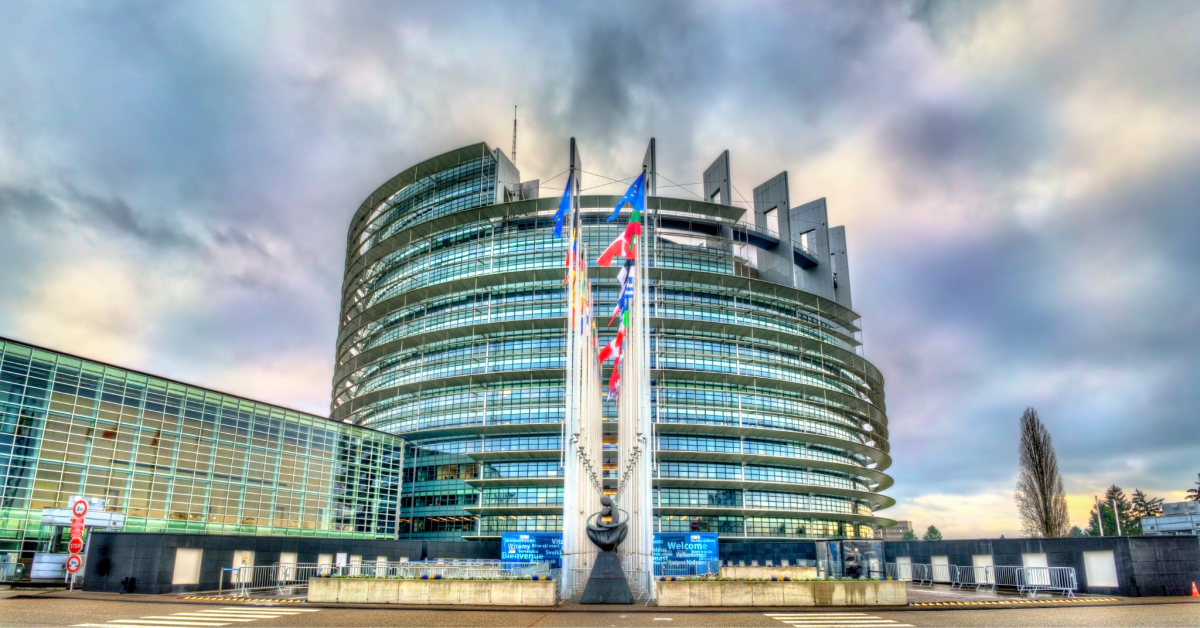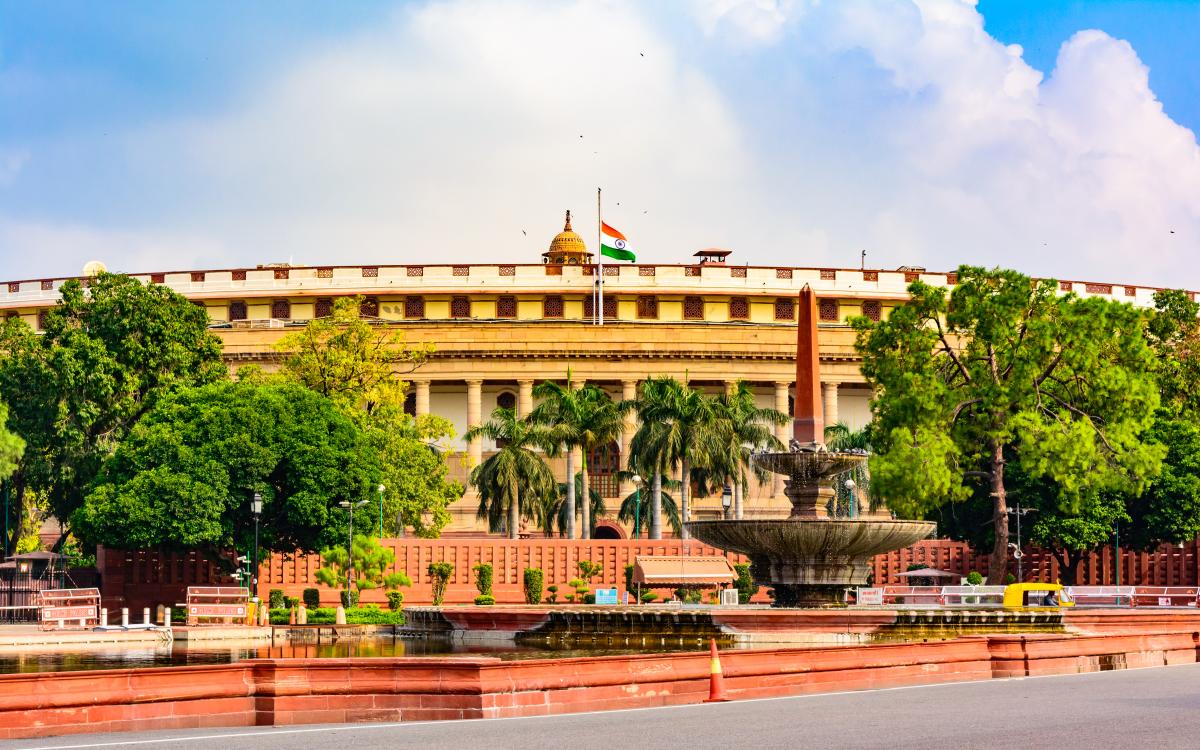Sunak Calls the General Election
At a Glance
- Rishi Sunak announced today the General Election will be held on Thursday, July 4.
- Ending months of speculation, the Prime Minister informed the nation of his intention to dissolve Parliament on May 30, thereby formally kicking off the election campaign.
- A six-week election campaign period will take place ahead of polling day.
What has happened?
Ending months of speculation and a hectic day of rumors swirling around Westminster, Prime Minister Rishi Sunak has announced the UK General Election will take place on Thursday, July 4.
Addressing the public from outside Number 10 Downing Street today, a rain-soaked Rishi Sunak confirmed next week’s planned recess will be cancelled and Parliament will formally be dissolved on May 30.
Speculation had mounted all day with Cabinet Ministers canceling travel plans to return to Whitehall for a crunch Cabinet meeting in which the Prime Minister sought their approval to press ahead with calling the election.
Fighting both the elements and noisy protestors on Whitehall, Sunak set out his pitch to the electorate, focusing on his priorities and legacy of supporting the economy through the pandemic. Sunak declared he will “fight for every vote” in the coming weeks.
Why has it happened now?
Today’s announcement surprised many in Westminster. After Sunak survived the immediate aftermath of the disastrous local election results, most election bets swung back towards the autumn, with November 14 seen as the most likely date.
Number 10 has clearly calculated that now is the most opportune moment to hold the election given the multitude of factors in play. The Prime Minister’s announcement comes against the backdrop of relatively positive economic news. The UK economy came out of recession with its Q1 growth of 0.6% surpassing expectations and today inflation hit 2.3%, just above the 2% Bank of England target and the lowest it has been in almost three years.
In addition, the Government’s flagship Rwanda legislation received approval from Parliament last month. While many people have their doubts as to whether it will address the scale of irregular migration into the UK, the expectation is that a symbolic flight will take off in the coming weeks, giving Conservatives something tangible to point to.
Taking the two together, the Tories will argue that, both in terms of the economy and addressing immigration, things are moving in the right direction and that Labour would put this all at risk.
We know there has been a robust debate within Number 10 between the Prime Minister’s Chief of Staff, Liam Booth-Smith, who has long pushed for an earlier election, and the Conservatives’ election strategist, Isaac Levido, who had favored waiting until later in the year.
Given Labour’s significant lead in the polls has remained remarkably stable over recent months, Number 10 has concluded that the Conservatives’ electoral chances—though still pretty dire—will not improve with time. There is also no guarantee that interest rates will fall in the coming months. This, coupled with reports the Treasury will not have any fiscal headroom for further tax cuts in the autumn, makes delaying the election further an increasingly risky strategy.
Sunak has therefore decided to roll the dice one final time in hopes the recent economic news will bolster the Conservatives’ chances.
What happens next?
The Prime Minister will formally ask the King to dissolve Parliament on May 30, at which point Members of Parliament lose their status and all seats become vacant.
Despite the election period, the current Government will remain in charge with the Prime Minister and other ministers continuing their duties during the campaign, ensuring the day-to-day governance of the country continues. In practice, however, they will only deal with urgent issues in order to focus on political campaigning.
Any legislation which has not already received Royal Assent will fall. Parliament will sit for a few days next week, known as the “wash up” period, where Parliament will be able to finish any outstanding business before it is dissolved. If the Government needs to bring forward legislation following the dissolution of Parliament—for example in response to an unexpected national emergency—then it would have to recall it, pushing back the date of the election (this is highly unlikely to happen).
Once Parliament is dissolved, the Government immediately enters a pre-election period, known as “purdah.” During this time, convention dictates that the civil service and other public bodies restrict their activity to avoid influencing or overshadowing the election. Officials must exercise discretion about announcing any new or controversial government initiatives that could be seen as advantageous to particular candidates or parties. This affects both central and local government, the devolved administrations, and public bodies (e.g., regulators).
All major parties will now hurl themselves into campaign mode. We can expect a series of rallies, television debates, and media interventions in the lead up to polling day. The selection of remaining candidates will also be supercharged in the coming days. A few high-profile constituencies are without candidates, including the Labour candidate for Islington North to take on former leader Jeremy Corbyn.
All eyes now turn to the formal launch of each party’s campaign—probably in the form of a major rally—and, ultimately, manifesto launches in a couple of weeks’ time to set out policy agendas.
How did we get here?
It is worth taking stock of just how different this election will be from the last given the unprecedented economic and political turmoil the UK has experienced since then. In 2019, the Conservatives won a historic fourth term in office against the backdrop of parliamentary paralysis over Brexit and a divided Labour Party led by Jeremy Corbyn. Boris Johnson led the Conservative Party to its largest majority in Westminster since 1987 and it looked like the UK was heading for a period of relative stability after the Brexit referendum and its messy fallout.
During his tenure, Johnson “got Brexit done” and led the UK through the COVID-19 pandemic but his premiership imploded after a succession of scandals, most notably “Partygate.” Following his ouster, we had Liz Truss’ 49-day premiership—which imploded even more spectacularly after markets reacted negatively to the unfunded tax cuts contained in her mini-budget.
Sunak took over promising to restore stability but had to contend with the fact that the party’s 2019 mandate—including its flagship leveling-up agenda—had been blown completely off course by the global wave of inflation which followed the pandemic and Russia’s invasion of Ukraine. He also inherited a badly divided party between its more moderate and populist wings on everything from economic and fiscal policy, how to manage immigration (both legal and illegal), and a series of “cultural” issues.
The combination of economic malaise and political dysfunctionality saw the Tories’ poll ratings slump with Labour enjoying a consistent poll lead of around 20 points. The accuracy of this polling was supported by a series of parliamentary by-elections—with both Labour and the Liberal Democrats winning seats from the Conservatives on huge swings—as well as local elections which have seen the Tories lose hundreds of councilors.
The challenge ahead for conservatives
After years of political and economic chaos, Sunak has the unenviable task of convincing voters to stick with the Tories in the face of Labour’s offer of change and national revival. The Conservatives have an almost unassailable mountain to climb if they are to cling onto power and form another majority. The voter coalition forged by Boris Johnson at the last election has fractured, with Labour, the Liberal Democrats, Greens, and Reform UK all hoovering up votes from disaffected 2019 Conservative voters, albeit for different reasons.
Labour’s poll has remained at a consistent 20-plus points over the last year. According to some projections, this would result in a heavy defeat for the party, potentially an even heavier defeat than the party suffered in 1997 when Tony Blair won a landslide—the benchmark for that defeat is 165 seats.
In practice, poll swings between the two main parties after an election has been called have never exceeded five points in either direction, averaging just 1.7 points. The Tories need a swing from the current polls of around 12 points to remain in power.
This highlights the true scale of the challenge facing the Prime Minister. If the Conservatives emerge victorious, it would be nothing short of the most significant political comeback in British electoral history. In reality, whatever he and other senior Conservatives say publicly, many in the party privately concede they will lose and are instead looking to reduce the scale of the defeat and ensure the party is in the best possible position in opposition.
Labour on the brink
In a video address delivered shortly after the Prime Minister’s announcement, Labour Leader Keir Starmer said, “Service of our country is the reason and the only reason why I am standing here now asking for your vote.” He remarked that Labour would fight the election campaign in a new “spirit of service: country first, party second,” which echoes his pledge card speech last week.
Pitching Labour as the party of stability given the political and economic turmoil of recent years, Starmer said, “A vote for Labour is a vote for stability, economic and political, a politics that treads more lightly on all our lives…a vote to stop the chaos.”
This is the moment that Labour has been waiting for—ahead in the polls and on the precipice of power for the first time in 14 years.
It should not be underestimated the challenges the party faced to get to this point. The 2019 General Election resulted in a landslide victory for the Conservative Party, with Labour slumping to only 202 seats—its worst result since 1935.
That Labour goes into this General Election with a historic opportunity is therefore remarkable. With a consistent double-figure lead in the polls, this is the first time since 2005 that the party is going into an election the clear favorite to win. In his first speech as Labour Leader, Starmer acknowledged that the party had a “mountain to climb,” but committed to “lead this great party into a new era, with confidence and with hope.” Just over four years into his leadership, it would appear Starmer has been vindicated and has delivered on his promise.
It hasn’t always been an easy ride though. A year into Starmer’s leadership, a by-election in Hartlepool saw the party suffer the loss of a totemic seat it had held since its creation in 1974. A recent biography of the Labour Leader revealed he saw it a personal rejection of his leadership and seriously considered quitting. Thankfully for Starmer, those close to him urged him to not act with haste, and by the end of 2021 Labour had taken a lead in the polls. It has not looked back.
Invigorated by such a change in fortunes, Labour turned its attention to setting out a plan for rebuilding the country. Core to this is Shadow Chancellor Rachel Reeves’ “securonomics”—in her own words, “recognizing that the security and prosperity of working people is integral to the strength, dynamism, and legitimacy of a market economy.” This is underpinned by a strict adherence to iron-clad fiscal rules, with a view to rebuilding trust in Labour as a party that can be trusted to govern in a tough fiscal climate.
The risk is that such a cautious approach inherently risks accusations of a lack of ambition. Labour’s very public climb down from its £28 billion green investment plan in February and criticism that followed reflects this. Speak to anyone at Labour, however, and they will dismiss this point as moot. They will point to the Party’s Five Missions for Government—a series of five priorities for government dealing with “long-term challenges” to initiate a “decade of national renewal.” They will be the central focus of a Labour Government—as the bedrock of an extensive policy platform spanning health, workers’ rights, planning, energy, foreign policy, and much, much more.
While undoubtedly important, the reality is that in this very moment such a debate doesn’t much matter. What matters to Labour is winning. Only once Keir Starmer has the keys to Number 10 can attention turn to actually governing.
Materials presented by Edelman Global Advisory. For additional information, reach out to Mohammed.Hussein@EdelmanEGA.com



